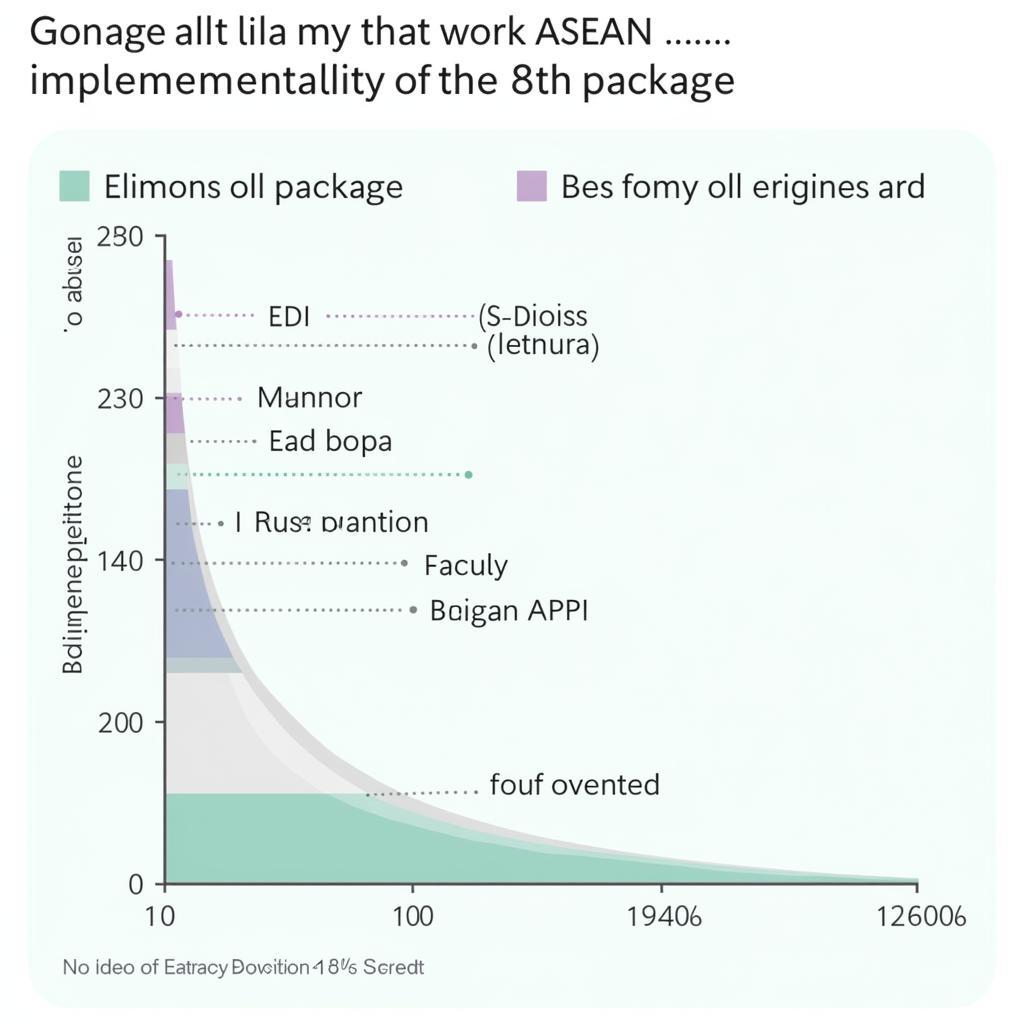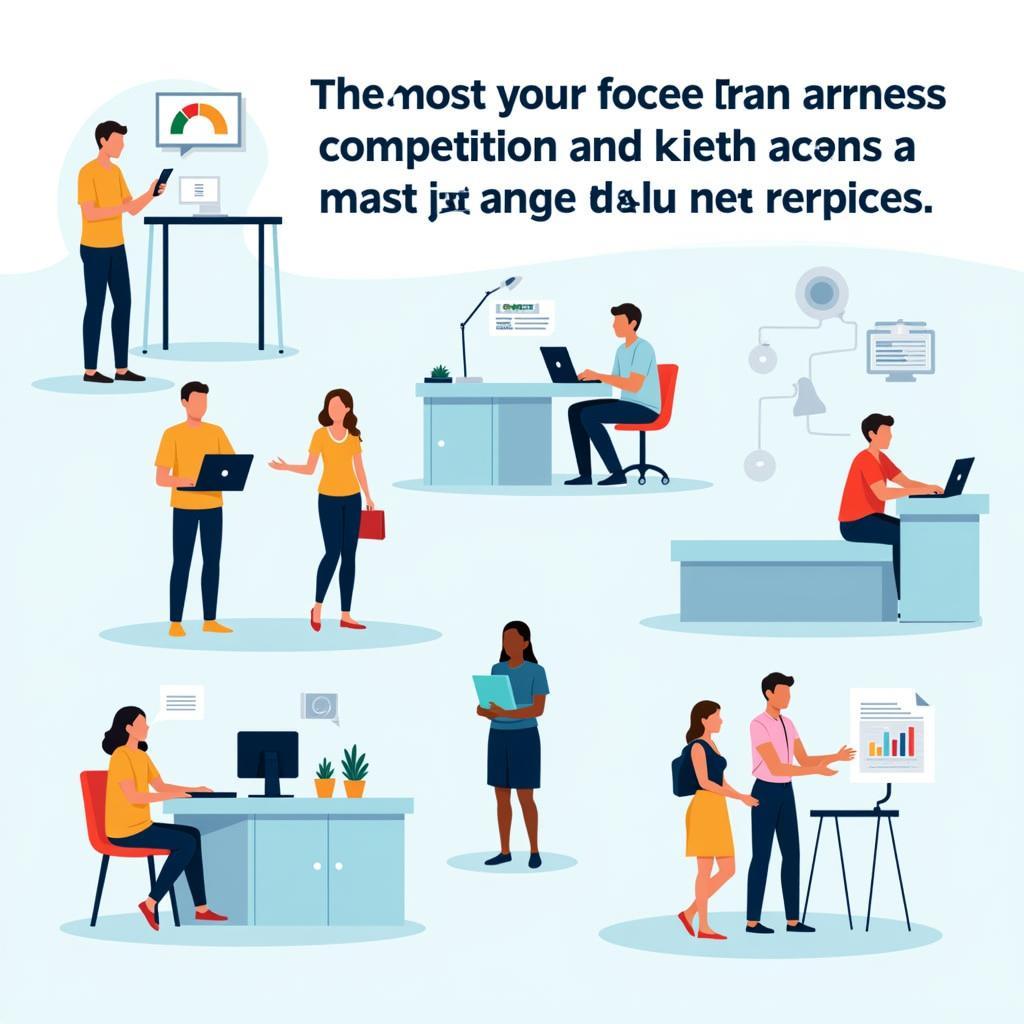The ASEAN AFAS (ASEAN Framework Agreement on Services) 8th Package is a significant step towards a more integrated and competitive services market within the ASEAN region. This latest package aims to further liberalize trade in services, boosting economic growth and enhancing regional connectivity. Let’s delve deeper into the specifics of the 8th package and its implications for businesses and consumers alike.
Unpacking the ASEAN AFAS 8th Package: Key Features and Benefits
The 8th package builds upon previous AFAS agreements, expanding market access commitments and regulatory transparency. It focuses on key sectors crucial for future economic growth, including e-commerce, logistics, and professional services. This expansion promises to create new opportunities for businesses, facilitate cross-border trade, and ultimately benefit consumers with a wider array of services and competitive pricing.
What sectors are impacted by the AFAS 8th Package?
The 8th package covers a broad spectrum of service sectors, some of which include:
- E-commerce: Streamlining regulations and reducing barriers for online businesses.
- Logistics: Facilitating smoother and more efficient movement of goods across borders.
- Professional Services: Enhancing market access for professionals such as lawyers, accountants, and engineers.
- Telecommunications: Promoting greater competition and innovation in the telecom sector.
- Tourism: Further easing travel restrictions and promoting tourism within the region.
These are just a few examples, and the full scope of the 8th package extends to many other service sub-sectors. This wider reach makes it a game-changer for businesses looking to expand their footprint within ASEAN.
The Impact of the ASEAN AFAS 8th Package on Businesses
The 8th package is poised to significantly impact businesses operating within the ASEAN region, creating new opportunities and challenges.
Opportunities:
- Expanded Market Access: Businesses can tap into larger markets, reaching new customers and expanding their customer base.
- Reduced Trade Barriers: Lower tariffs and simplified regulations will facilitate easier cross-border trade.
- Increased Investment: The improved business environment is likely to attract greater foreign investment.
- Enhanced Competitiveness: Greater competition will push businesses to innovate and improve their offerings.
Challenges:
- Increased Competition: Businesses will need to adapt to a more competitive landscape and differentiate their offerings.
- Regulatory Changes: Staying abreast of the evolving regulatory landscape will be crucial for compliance.
- Talent Acquisition and Development: Finding skilled labor to meet the demands of a growing market will be essential.
 ASEAN businesses thrive with the AFAS 8th Package
ASEAN businesses thrive with the AFAS 8th Package
Understanding the Implications for Consumers
The Asean Afas 8th Package isn’t just about businesses; it also holds substantial benefits for consumers across the region.
- Greater Choice: Consumers will have access to a wider range of services from both domestic and international providers.
- Competitive Pricing: Increased competition should drive down prices and improve the overall value proposition for consumers.
- Improved Quality: Businesses will be incentivized to enhance the quality of their services to stay competitive.
- Increased Innovation: The 8th package fosters innovation, leading to new and improved services that benefit consumers.
“The 8th package is a crucial step forward for ASEAN. It’s about creating a more integrated and vibrant service economy that benefits everyone,” says Dr. Anya Sharma, a leading economist specializing in Southeast Asian trade.
 Consumers enjoy wider choices and competitive pricing
Consumers enjoy wider choices and competitive pricing
Conclusion: ASEAN AFAS 8th Package – A Catalyst for Growth
The ASEAN AFAS 8th package signifies a pivotal moment in the region’s economic integration. By further liberalizing the services sector, it sets the stage for increased trade, investment, and ultimately, greater prosperity for businesses and consumers alike. While challenges exist, the opportunities presented by the asean afas 8th package far outweigh the risks, making it a crucial driver of growth and development within the dynamic ASEAN region.
FAQ
- What is the ASEAN Framework Agreement on Services (AFAS)?
- How many AFAS packages are there?
- What are the key objectives of the AFAS 8th package?
- How will the AFAS 8th package benefit consumers?
- Which sectors are covered under the AFAS 8th package?
- When was the AFAS 8th package implemented?
- Where can I find more information on the AFAS 8th package?
For support, please contact Phone: 0369020373, Email: [email protected] Or visit us at: Ngoc Lien Village, Hiep Hoa, Bac Giang, Vietnam. We have a 24/7 customer service team.


